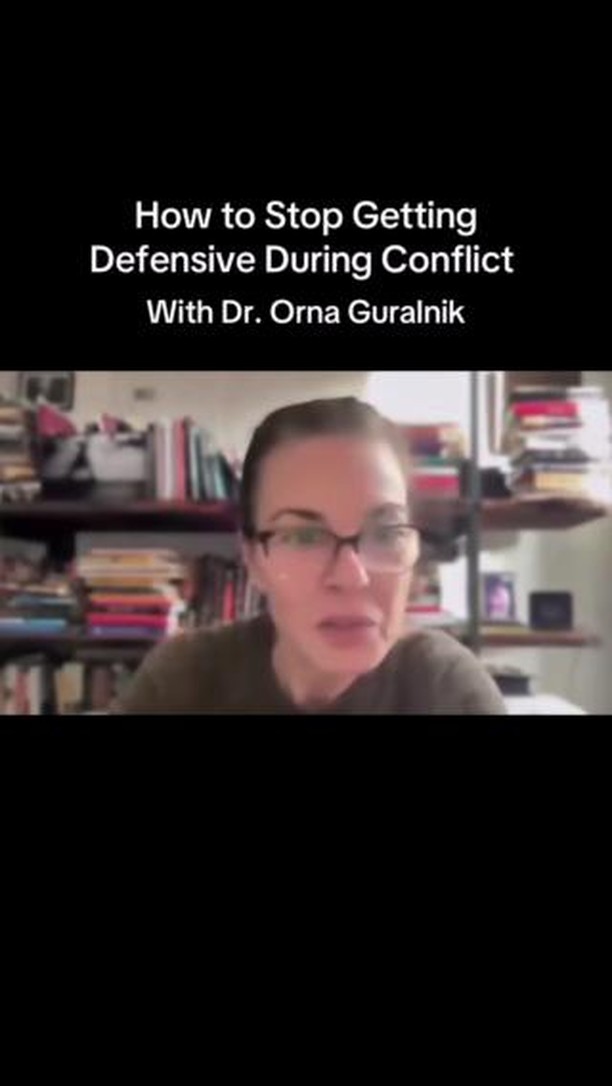ll couples argue every so often. It’s something that can come hand in hand with being in a committed relationship. However, when you disagree more often than you agree, or your arguments become a lot more regular than erratic, it’s important to take a step back and consider whether or not you are a high-conflict couple - one that experiences intense arguments regularly.
Recognizing the signs of a high-conflict relationship can be difficult when you’re in one. In this article, OurRitual’s experts have highlighted the key indicators that suggest you may be part of a high-conflict couple and explore strategies on how to address these challenges.
5 signs you are a high-conflict couple
#1 You argue frequently
One of the key indicators of a high-conflict couple is frequent and intense arguments. As mentioned, disagreements are normal in any relationship but constant bickering, yelling, and unresolved disputes can be a sign of deeper issues. If your conflicts escalate quickly and generally involve harsh language and personal attacks, your relationship may very likely be high-conflict.
#2 Your arguments are emotionally intense
High-conflict couples tend to experience heightened emotional intensity. This is where emotions run extremely high during arguments. This intensity can make it difficult to have a productive conversation as both partners may struggle with communicating effectively and finding common ground. Recognizing emotional intensity is crucial for recognizing your relationship as high-conflict.
#3 You are constantly playing the blame game
In a healthy relationship, partners work collaboratively to address issues and find solutions together. In contrast, a high-conflict couple usually engages in a pattern of blaming and finger-pointing. Instead of taking responsibility for the part they played in the conflict, individuals will focus on assigning blame to their partners. This can create a toxic cycle of defensiveness and resentment.
#4 You never resolve anything
The inability to resolve conflicts is a key characteristic of high-conflict couples. Whether it’s due to communication breakdown, unwillingness to compromise, or underlying issues, if you are in a high-conflict relationship, you may find yourself stuck in a repetitive cycle of arguments without resolution. If you want to find the root cause, it’s crucial to first recognize these patterns.
#5 You argue over minor things
Household chores, snoring too loud, or forgetting to pick up milk - if you have argued over any of these issues or something similarly trivial before, it might be symbolic of a deeper, underlying issue. If these conflicts over small issues tend to escalate quickly, regardless of the initial trigger, it may be an indication that there are several unresolved issues within your relationship and that it may be high-conflict.
Physical, psychological, or sexual abuse is a clear indicator that you should consider ending a relationship. If you are the victim of domestic violence and need support, you can call the National Domestic Violence Hotline at 1−800−799−SAFE(7233) for help 24/7.
How to address high conflict in a relationship
- Self-reflection: The first step in addressing high conflict in a relationship is self-reflection. You and your partner should take a close look at your behaviors, communication styles, and contributions to the conflicts. Honest self-assessment can pave the way for personal growth and increased self-awareness.
- Open communication: Effective communication is essential in any relationship, especially in high-conflict situations. Try to create a safe space for open and honest dialogue, free from judgment and blame. Establishing ground rules for communication, such as using "I" statements and active listening, can foster a more constructive exchange of ideas.
- Seek professional help: If efforts to resolve conflicts independently prove challenging, seeking the assistance of a professional therapist or counselor can be invaluable. A trained therapist can provide guidance, facilitate communication, and help you both explore the underlying issues contributing to the high-conflict dynamics. If you and your partner would prefer guidance that works around your schedule, consider online relationship guidance with OurRitual.
- Develop conflict resolution skills: Learning and implementing effective conflict resolution skills is crucial for transforming a high-conflict relationship. This includes developing the ability to compromise, actively listen, and find common ground. Both you and your partner could benefit from educational resources, workshops, or counseling sessions focused on enhancing these skills.
- Establish boundaries: Setting clear and healthy boundaries is essential for creating a positive and respectful relationship dynamic. Establishing boundaries can help prevent the escalation of conflicts and promote a sense of security and trust between you and your other half. You should communicate your needs and expectations openly - and encourage your partner to do the same.
OurRitual is on a mission to make good relationship care accessible to all. Our model was designed to remove barriers like cost, tight schedules, and partner participation. We do that with scientifically validated methods, supported by the most up-to-date research from the strongest names in the field.
Here’s how it works:
- You will work with a trained professional who can offer a wide variety of evidence-based interventions.
- In between your sessions, you will receive weekly videos with tried-and-tested knowledge and exercises focused on your specific needs and goals.
- The sessions with your dedicated expert will help you integrate what you learned into everyday life.
Start your journey with OurRitual today.













